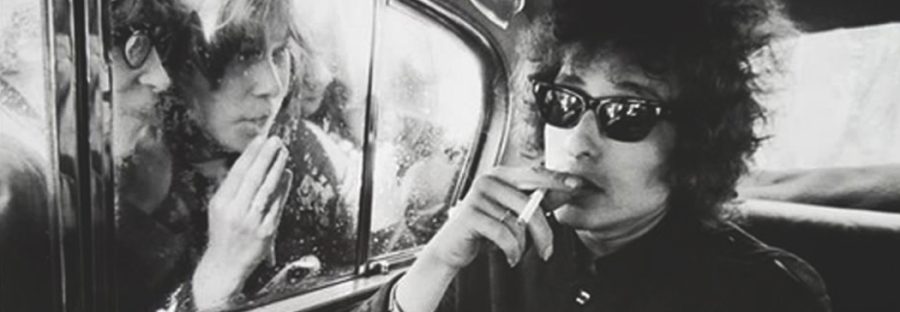Bob Dylan: The Reluctant Revolutionary
The term ‘voice of a generation’ is one which gets thrown at almost any new artist who tries to tell a story through their music. The Smiths were, for a time, the ‘voice of a generation’, as were the Arctic Monkeys, albeit for a significantly shorter period. But, for Bob Dylan, this mantle somehow doesn’t do him justice. Bob Dylan has been the voice of multiple generations until now, and will continue to speak for generations well into the future.
The 60’s were a time in which singer-songwriters were abundant; Greenwich village had a dozen on every street corner, and some of them (Dave van Ronk and Phil Ochs) were special enough to warrant waxing lyrical (if you pardon the pun) about themselves, but Dylan was always a cut above.
What was, and is, different about Dylan, other than the sheer quality of his songs, is that each song seemed to come from a place of absolute honesty. His face; a scrawny, drawn out looking jumble of features, with a look constantly fixed somewhere between pubescent and eternal, still with its baby fat intact, seemed perfectly at home singing about the endless woes of the world. Very few 20-somethings could pen an anthem for change and, instead of being laughed out of every room they were ever in, enact actual change the results of which are still being felt to this day.
Trying to boil down Bob Dylan’s career to a succinct soundbite is often a fruitless task. You talk about one era, and you ignore half a dozen more; you talk about the early landscape-changing folk of the early 60’s, and you ignore the rock and roll and country of the late 60’s; you talk about his ‘revival’ in the 70’s and you ignore the blues-inspired rock of the late 90’s and early 00’s. The truth is, that to truly appreciate any of Bob Dylan’s work in its purest form, you almost have to appreciate it all. In being reductive with Dylan, in not putting him on the pedestal which he deserves, you risk losing sight of what actually made, and still makes, Dylan great.
Yes, he may have had the legendary Al Kooper on guitar and organ and John Hammond producing throughout the 60’s, but this was very much the Bob Dylan Show, as it has continued to be for the past 50 years, and it shows no sign of changing.
Not many artists can have a song named the ‘greatest song of all time’ and it not even be the best song on its album. But, for Bob Dylan, this became something of a normality in the mid-1960’s. Every album had a multitude of songs which could rightfully be labelled as the greatest of all time. ‘Freewheelin’’ had the anthemic ‘Blowing in the Wind’, ‘The Times They Are a-Changin’’ had its history-defining titular track, and ‘Another Side of Bob Dylan’ had ‘Spanish Harlem Incident’. Any of these would be the shining star in any other artist’s catalogue, but for Bob Dylan, they were just album tracks.
‘If I wasn’t Bob Dylan, I’d probably think that Bob Dylan has a lot of answers myself’. In the end, it’s Bob Dylan’s quote about himself which sums him up like no other writer, journalist or biographer has ever been able to do before; a man who has taken up the mantle of one of the greatest singer-songwriters of all time seemingly reluctantly, but who still sees himself as ‘more of a song and dance man’ (as he said of himself in 1965) with no more answers about the world than you or I. A man who, as soon as his audience felt they had him sussed, about turned and pulled a move from way out of left-field, and was all the better for it.


